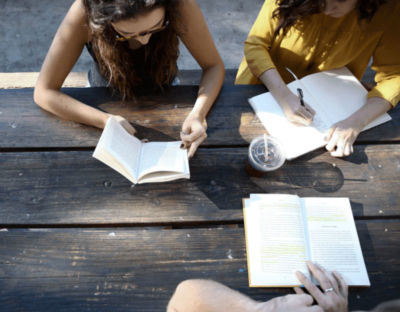During the last decades, important changes have taken place in the role of learning in our lives and in a great deal of factors that affect human learning: where, when, how, with whom, from whom and –of course- what and for what purpose we learn. All these changes force us to revise our understanding of the learning processes and set new challenges to the educational systems, built upon a learning ecology that is instantly left behind by our current reality. BLE –Bridging Learning Experiences- has the purpose of becoming a place of encounter, of information exchange and of shared reflection for researchers, education professionals, and, more generally, for any person interested in understanding learning processes and analyzing their educational consequences in this new scenario.
BLE refers to one of the most outstanding and influential features of this new learning ecology. Supported by ICT, new niches of learning, as well as the reinforcement of traditional contexts of activity and development (family, community, cultural and leisure institutions, job…), have emerged as potential niches of learning. Learning opportunities, resources and tools are multiplying and diversifying. Learning does no longer link to a single context of activity, traditionally the formal educational institutions; instead it appears as the result of learning experiences that people gather together taking part in all the activity contexts through which they transit.
 Hence, personal learning trajectories -the set of learning experiences and learning that we obtain through participation in the network of activity contexts to which we have access- become essential elements to understand what we eventually learn and how we construct ourselves as learners
Hence, personal learning trajectories -the set of learning experiences and learning that we obtain through participation in the network of activity contexts to which we have access- become essential elements to understand what we eventually learn and how we construct ourselves as learners
The students’ personal learning trajectories highlight the growing gap between the learning they carry out in the contexts in which they participate outside of school and the learning that they must accomplish in schools and institutes, according to the school curriculum. This gap is at the base of one of the most important problems facing our education system today: the progressive fading of the sense of education and school learning, which manifests in practically all levels of the education system and it affects – to a greater or lesser extent- all the educational agents: students, teachers, families and society in general. The educational and psychoeducational research results show that learning personalization, understood as a set of pedagogical and didactic strategies aimed at promoting and reinforcing the sense of school learning, is an adequate way to face the worrying and growing phenomenon of the blurring of school learning sense.
From these coordinates, BLE establishes the following goals:
- To promote the study of learning processes within the new learning ecology, contributing to its understanding and explanation, providing up-dated information of the most promising theoretical and methodological approaches and the most outstanding research results in the field.
- To foster research and reflection about the processes of Learner Identity (LI) construction.
- To identify, analyze and debate about the educational challenges that the new learning ecology presents, and the changes that educational systems should face in order to contribute to the development of competent learners in our current society.
- Discuss the role of learning personalization practices as strategies to increase the sense of school learning in the context of the new learning ecology, and contribute to its explanation and understanding, providing up-to-date information on the most promising theoretical and methodological approaches and of the most outstanding research results on the subject.
- Propose priority lines of action to advance in the direction of greater school learning personalization related to educational centers and teachers, the educational community in general, and to educational administrations and those responsible for educational policies.
